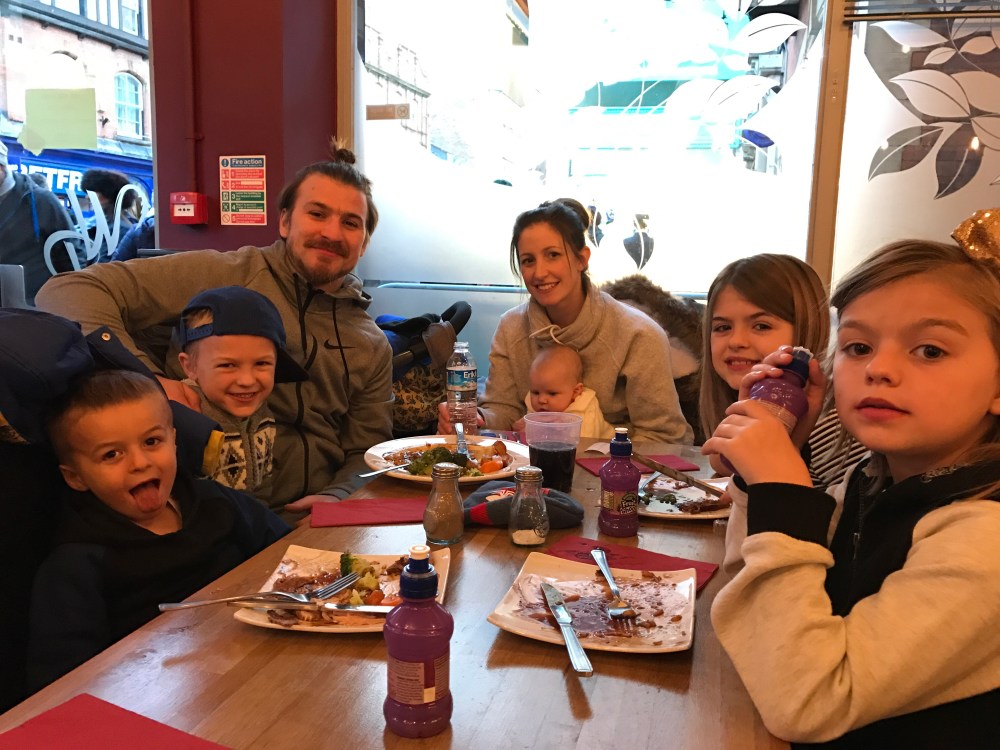1) You have to drink every day to be an alcoholic…
This one is real significant for everyone to know. From COA’s, to the parents, to teachers, and friends. For a child to be affected by a parents drinking, that parent does NOT need be drunk every day, let alone 24/7.
So just because you have met a parent countless times and they’ve never seemed remotely drunk, it doesn’t mean there’s no chance of alcohol issues at that home. Alcoholism is a complex issue, that can take on many different disguises, coming in bouts, and fits and starts, periods of sobriety, secrecy, and yes of course, as daily drinking.
So if a child ever reaches out, it may be the only time they ever do, so it’s most important that they are believed, and given the right compassion they deserve.
2) Children of alcoholics don’t want to talk.
If I was saying what I’m about to write, I would be shouting it, because this myth really gets my back up. Have you ever been in argument when someone tells you that you’re not listening, and you’re thinking, “Not listening?! If you would actually give me a chance to speak, you might hear what I have to say?!!!”
Well, this is exactly what society has been doing to children of alcoholics. Still today I hear people claim we are in a tricky situation with children of alcoholics because they just won’t speak… Well let me tell you something, and yes my voice is at maximum volume right now, IF YOU WOULD ACTUALLY GIVE US A CHANCE TO SPEAK, YOU MIGHT HEAR US!
I want each everyone of you to know that that given the chance to speak, and by that I mean the right environment, with the right love, compassion, and understanding, then almost every single child of an alcoholic will speak. Don’t believe me? Nacoa has taken over 300,000, yes three hundred thousand calls in the last 26 years, simply because they understood that children of alcoholics wanted to talk, but just hadn’t been fed the right opportunity. Nacoa offers that. It’s never been a case of weather COA’s are willing to talk, it’s a case of weather society is ready to listen.
3) Stopping drinking removes all the problems and affects caused in an alcoholic home.
The problems in an alcoholic home are not simply that of the chaos that is caused when an alcoholic drinks. It’s considerably more deep and complex than that. For me, drinking is simply a symptom of alcoholism, and the behaviours of the alcoholic when sober, can be just as damaging as the behaviours when drunk. The internal condition that the alcohol was, or is being used to suppress, does not simply disappear after a short period of abstinence.
The way an alcoholic parent can make you feel when stone cold sober, can often be riddled in just as much fear as the way they make you feel drunk.
Therefore, often if an alcoholic is stopping drinking, then stopping drinking is simply the beginning, of what would need to be a huge change.
4) An alcoholics recovery should come before anything!
First off, I get this. For me recovery had to become my life for a period of time, so that it could then become part of my life. But I think we need to be a little bit careful with such a statement as ‘recovery should come before anything‘. The reason I say that is because time and time again, I have heard people say ‘recovery should come before anything… even my family’, and I have to take issue with this. I know people’s first reaction will be to argue that without recovery, there is no family, but the point is that the whole family needs recovery. Selfishness is often at the heart of alcoholism, and though I know the alcoholic will often need to get submerged in recovery, the children will also need their recovery too. That’s why Nacoa is so important to children whose parents are in recovery too, the need for that life saving compassion is still there. Just like an alcoholic will tell you that they will always be an alcoholic, a child of an alcoholic will always be a child of an alcoholic. It makes complete and obvious sense that a family illness should require family healing. 20 years ago my dad was taken by alcoholism and I’m still healing today. Recovery does not come before my family, we do recovery as a family.
5) Children can be too young to understand.
I don’t buy this one either I’m afraid. I think the line ‘they were too young to understand’ is in often used in hope, and is lined with denial. I watch my 4 month old daughter looking around and taking everything in, poking her tongue out to mimic me and I know without a doubt her development is affected by the moods of what’s going on around her. The brain is developing at its fastest rate in those all important first years so if any argument is going hold weight, it would be that what’s going on around children who are ‘too young‘ is more important than ever! Children are not stupid, they are human beings growing to cope with life. It is essential they are given the opportunity to be heard, and believed about the ways that they are feeling about their surroundings. Again something Nacoa,s helpline has understood for a long long time.
This video highlights how much children understand.
6) Children are protected if they never see the alcoholic drunk.
This again is of those statements I feel is laced with denial. A while back I tweeted something like,
‘This morning, millions of children, after listening to a night of chaos, will go downstairs, only to be told nothing… even… happened’
It got a big reaction and any child of an alcoholic will know why. It doesn’t matter if the child is 2, 10, or 15 years old, they will often lay upstairs and listen to it all! So the next morning when we are told that it’s all fine, and nothing happened, we are left more confused than ever. Being the child of an alcoholic is about the way the alcoholism makes you feel. Yes, seeing some of the things adds to the trauma, but simply hearing it and leaving the rest to our imagination that is already riddled with fear and anxieties is just as dangerous!
I’m not blaming here, I’m simply getting honest. So if we did not speak to these children in isolation then, frankly, it would be ridiculous. Nacoa did not set up an anonymous helpline on a whim, they did so because they understood the needs of a COA! They understood that even if one parent was not a drinker, they were often still engrossed in the denial of alcoholism, and the child or children are left unable to discuss and regulate their feelings. Something Nacoa volunteers are often doing on the helpline.
7) Shutting the alcoholic out for good, will stop the need for healing.
This is a place many children of alcoholics find themselves. Faced with the pain of having to walk away, and shut out their parent for good. A painful decision for anyone to have to make, but so often the only one a child of an alcoholic is left with. But despite that, the pain doesn’t just go away. Any child of an alcoholic who feels they are weak because it was so long ago and they still feel the pain and the chaos of being around an alcoholic parent, is absolutely not alone and should not feel weak. Being a COA affects us on the inside, and that’s something we do not escape. I am strong today because I know how I feel, and I know when I need help. Asking for help is strong. That feeling of loneliness can come over me at any time, and I know I have to reach out. Today I reach out.



Great insights. Thank you
LikeLiked by 1 person
Thank you! Appreciate your support.
LikeLike
I am an adult child of an alcoholic. Even though he had quit drinking for years his drinking has had a life long effect on me. He passed in 2013 at the age of 91. My mother and I went through years of hell with him. The emotional abuse we went through was worse than any physical abuse. I am 58 years old and I still have my issues.
LikeLiked by 1 person
What you say about the physical and emotional abuse resonates so much with me. And the affects never leave.
LikeLike
Thank you. I agree that loneliness comes from the missing parent who can’t give the love and care that we needed as children. Wishing you well and thank you for your posts and videos 🙂
LikeLike
I am also an aca in early recovery and am very inspired by everything that you wrote. Thank you so much for doing what you do and keep doing what you’re doing!!
LikeLiked by 1 person
Thanks for this. More people need to know this stuff. I appreciate you taking the time to get info out there.
LikeLiked by 1 person
Great article. Both of my parents were alcoholics (my dad is no longer alive which is why I say ‘was’) and all of these resonate with me especially 1 & 3. Alcoholism isn’t always about the drinking (but underlying mental health issues) and so issues don’t vanish when the drinking stops. Thanks for writing up.
LikeLiked by 1 person
Thank you for sharing with us. Yes for me it’s always been about the ways it’s made me feel. This blog site has become a platform for people to share their experiences and it’s so amazing how our internal stuff is often so similar!
LikeLike
It is a good article. But i have to note you are using the wrong weather. In the context of your article it should be whether.
LikeLiked by 1 person
Thanks Tanya! You’re actually not the first to mention this either. If I change it now it spoils the links. Thanks for reading 🙂
LikeLike
I am almost 82 years old but still have painful memories of living with parents who got drunk every weekend. Thank God I had counseling as an adult and learned that I am not alone and that I am a worthwhile person. Keep up the good work NACOA!
LikeLiked by 1 person
Amazing comment and thank you. 🙂
LikeLike
I am a recovering alcoholic and it breaks my heart to see some of the relationships I have damaged. Thankfully, I found recovery early enough so that I didn’t expose it to my kids or spouse. Alcohol is cunning, baffling, and powerful. It has the capacity to destroy and hurt so many…
this really is an awesome post.. great work!
LikeLiked by 1 person
Excellent.
LikeLike